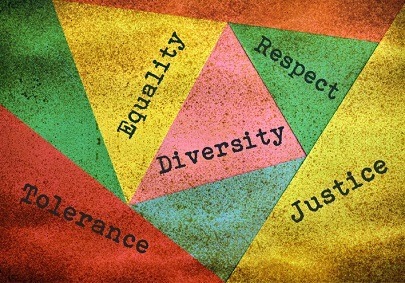
Damian Hinds spoke on 9 March about diversity in education, and how important it is for all pupils to see role models in their teachers
Education secretary, Damian Hinds, spoke to educational diversity leaders about the importance of diversity and inclusion in education, last week.
Hinds said: “We often talk about diversity as a matter of fairness and non-discrimination, including to individuals. And that is indeed extremely important – a matter of equity and justice. And we believe it is, simply, right that we should reflect the make-up of our communities.
“But for organisations, there is also intrinsic value in diversity of your workforce – including age, gender, disability, sexuality and ethnicity. If we look at three aspects – broadening the talent pool; reflecting and understanding the customer base, different perspectives and problem-solving – these all support productivity.
“Now, a lot of people do recognise that, but even in organisations where it is widely recognised, that doesn’t mean diversity will come about automatically.
“It can be impeded by the way we do things, how we present to the outside world, and by the, I think, pretty widespread human tendency to hide in our own image.
“I am delighted to join you today for your discussions about diversity in school leadership. It’s an issue I’m passionate about promoting.
“As education secretary, I am committed to creating a culture where teachers love their jobs and where children do their best. And we all know the huge difference a great teacher can make to a child’s life.
“The problem the UK faces is that we need more of them. Although we have almost the highest number of teachers ever, with pupil numbers in secondary schools rising, the demand for them is outstripping supply.
“And, although the number of teachers and heads from minority ethnic backgrounds is certainly going up, this is from a low base – it is lower for example than the NHS and we need to see more of them being represented in school leadership.
“The number of ethnic minority teachers in nursery and primary schools rose from nine per cent to 11%, and from 13% to 17% in secondary schools between 2010 and 2017. There’s a corresponding rise too in the numbers of those in headteacher positions (up from five to seven per cent in primaries and seven to nine per cent in secondaries).
“Welcome though those changes are, they still fall well short of the 19.5% that makes up the UK population and even further below the 32% of the school pupil population who come from ethnic minority groups.
“My colleague Nadhim Zahawi hosted a roundtable last year on the different levels of achievement of ethnic groups in school.
“The roundtable concluded that we need far more teachers from ethnic minorities in schools as role models for young students. Seeing teachers, and a headteacher in particular, who are from minorities can help motivate young people and encourage them to go for their goals.
“It is a virtuous circle: more teachers from racial and ethnic minorities are positive role models, which in turn can drive academic achievement.
“Ladies and gentlemen, Britain has been a rich, multi-ethnic melting pot for many years. In our schools we need to draw on the full range of talent, and to reflect children’s communities. When we learn from each other we become stronger and better. Our future success depends on it.”
Read the full transcription here.
Don’t forget to follow us on Twitter, like us on Facebook, or connect with us on LinkedIn!


Be the first to comment